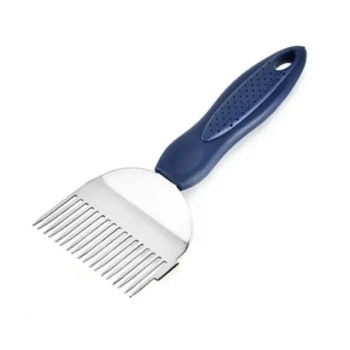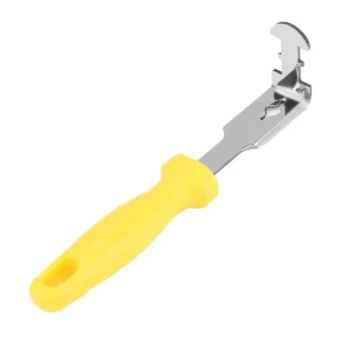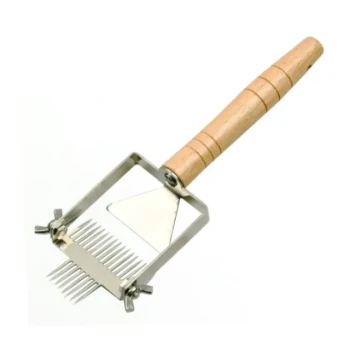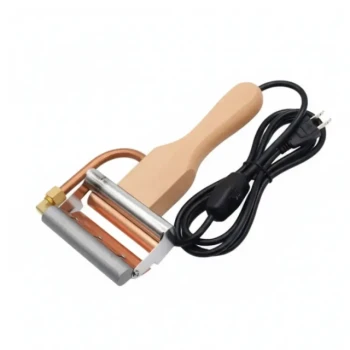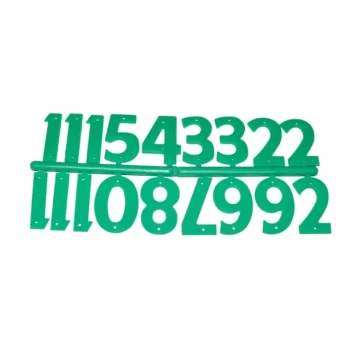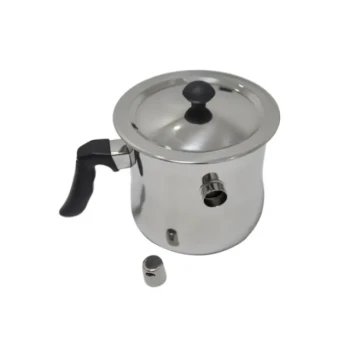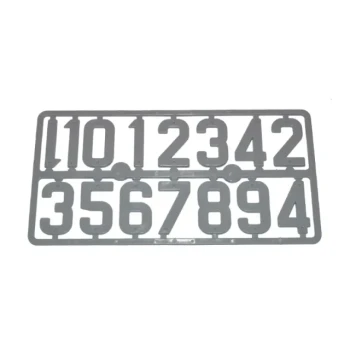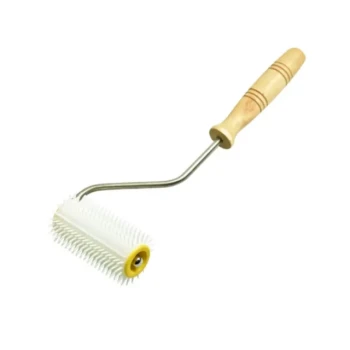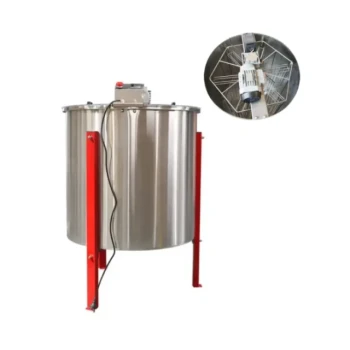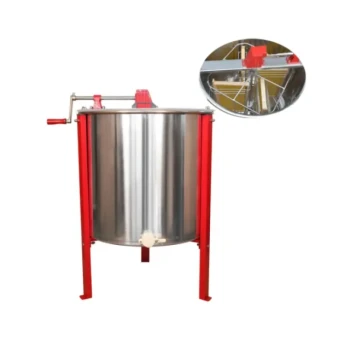Learning beekeeping is not about a fixed timeline, but about experiencing a full cycle of seasons. While you can get started and handle basic tasks within a few months, becoming a competent beekeeper who can confidently manage a colony's health and anticipate its needs typically takes one to two full years.
The core truth is that bees and nature set the curriculum. Your first year is a guided tour of the essentials—from installation to winter preparation—while true proficiency develops over several years as you learn to solve problems and adapt to the unexpected.
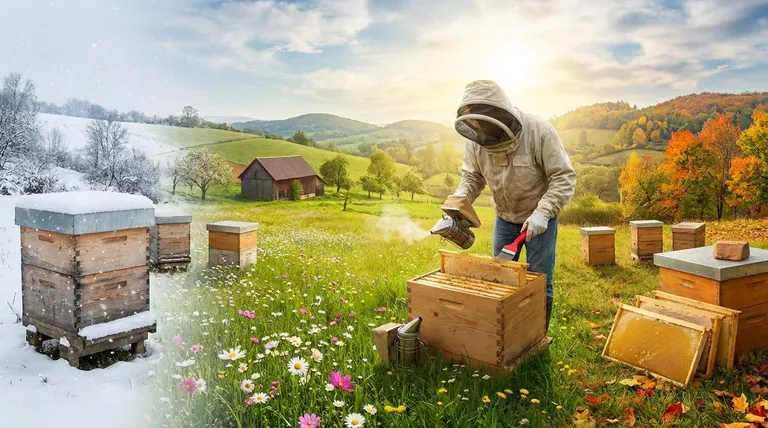
The First Year: Your Foundational Education
Your initial year is an intense apprenticeship where you learn by doing. Every season presents a new set of tasks and lessons, building a foundation of hands-on experience that no book can fully replace.
Winter: The Planning Phase
Before you even acquire bees, your education begins. This is the time for reading, attending local beekeeping club meetings, and ordering your essential equipment—the hive, protective gear, and tools.
Spring: The Practical Start
This is when theory meets reality. You will install your first package of bees or a nuc, and the hands-on learning curve becomes steep. Your focus will be on performing weekly inspections and learning to identify the queen, eggs, larvae, and capped brood.
Summer: The Management Phase
As the colony population explodes, your job shifts to management. You'll learn to monitor for pests like varroa mites, ensure the bees have enough space to expand, and understand the "nectar flow"—the period when plants are producing the most nectar.
Fall: Harvest and Winter Preparation
If your colony is strong, you may have a small honey harvest. More importantly, you will learn the critical task of preparing your hive for winter, ensuring the bees have enough food stores and protection to survive the cold months.
Beyond the First Year: Building Competence
Simply getting through one year is the start, not the end. The subsequent years are about moving from a reactive to a proactive beekeeper, where you can anticipate challenges before they become crises.
Years 2-3: From Reacting to Anticipating
Having seen a full seasonal cycle, you can now recognize patterns. You'll learn more advanced skills like swarm prevention, splitting a strong colony to create a new one, and more effective pest management. This is where you truly start to feel like a beekeeper.
The Lifelong Learning Curve
Even beekeepers with decades of experience will tell you they are still learning. Each year brings different weather patterns, new challenges, and subtle lessons from the bees themselves. Mastery is a continuous process.
Key Factors Influencing Your Learning Speed
Not everyone learns at the same pace. Several factors can dramatically accelerate your journey and help you avoid common beginner mistakes.
Finding a Mentor
This is the single most effective way to learn. An experienced mentor can answer questions, look over your shoulder during inspections, and provide context that books cannot.
Joining a Community
Local beekeeping clubs are invaluable resources. They offer structured classes, connect you with mentors, and provide a network of people who understand the specific challenges of your region.
Starting with Two Hives
While it seems like more work, starting with two hives is highly recommended. It allows you to compare colony development and provides a resource (a frame of eggs or brood, for example) to help a weaker hive if one runs into trouble.
Making the Right Choice for Your Goal
Your "learning time" depends entirely on what you want to achieve. Beekeeping can be a casual hobby or a serious craft.
- If your primary focus is pollination and a fun outdoor hobby: Expect to dedicate your first full year to learning the seasonal cycle and basic colony care.
- If your primary focus is a reliable honey harvest: Plan for a 2-3 year learning curve to understand how to build strong, healthy colonies that produce a surplus.
- If your primary focus is mastering the craft: View beekeeping as a lifelong pursuit where education never truly ends.
Ultimately, you learn beekeeping at the pace the bees and the seasons dictate.
Summary Table:
| Stage | Timeline | Key Focus |
|---|---|---|
| First Year | 12 Months | Foundational skills, seasonal cycle, basic colony care |
| Years 2-3 | 1-2 Additional Years | Proactive management, swarm prevention, advanced techniques |
| Lifelong | Ongoing | Continuous adaptation and mastery of the craft |
Ready to start or scale your beekeeping operation with confidence?
As a commercial beekeeper or equipment distributor, having reliable, high-quality supplies is fundamental to your success. HONESTBEE supports your journey by providing the durable beekeeping equipment and supplies you need to build and manage thriving apiaries.
Contact our wholesale experts today to discuss your specific needs and discover how our products can help you build a more efficient and profitable operation.
Visual Guide

Related Products
- Professional Multi-Function Uncapping Fork with Integrated Blade for Beekeeping
- Plastic Chinese Queen Grafting Tool for Bee Queen Rearing
- Heavy Duty Stainless Steel Frame Cleaner with Plastic Handle
- Adjustable Stainless Steel Honey Uncapping Fork with Scraper Beekeeping Tool
- Stainless Steel Triangle Support Honey Strainer and Filters
People Also Ask
- How does an uncapping plane work? Precision Honey Harvesting with Adjustable Blades for Beekeepers
- Why is the use of professional uncapping knives or uncapping forks necessary? Unlock Your Honey Harvest Efficiency
- What are the benefits and drawbacks of using an uncapping fork? Maximize Comb Preservation in Your Apiary
- What is the original purpose of an uncapping fork? Mastering Precision Honey Extraction and Comb Preservation
- Why is maintaining a neutral joint position important? Prevent Strain with Ergonomic Beekeeping Consumables
